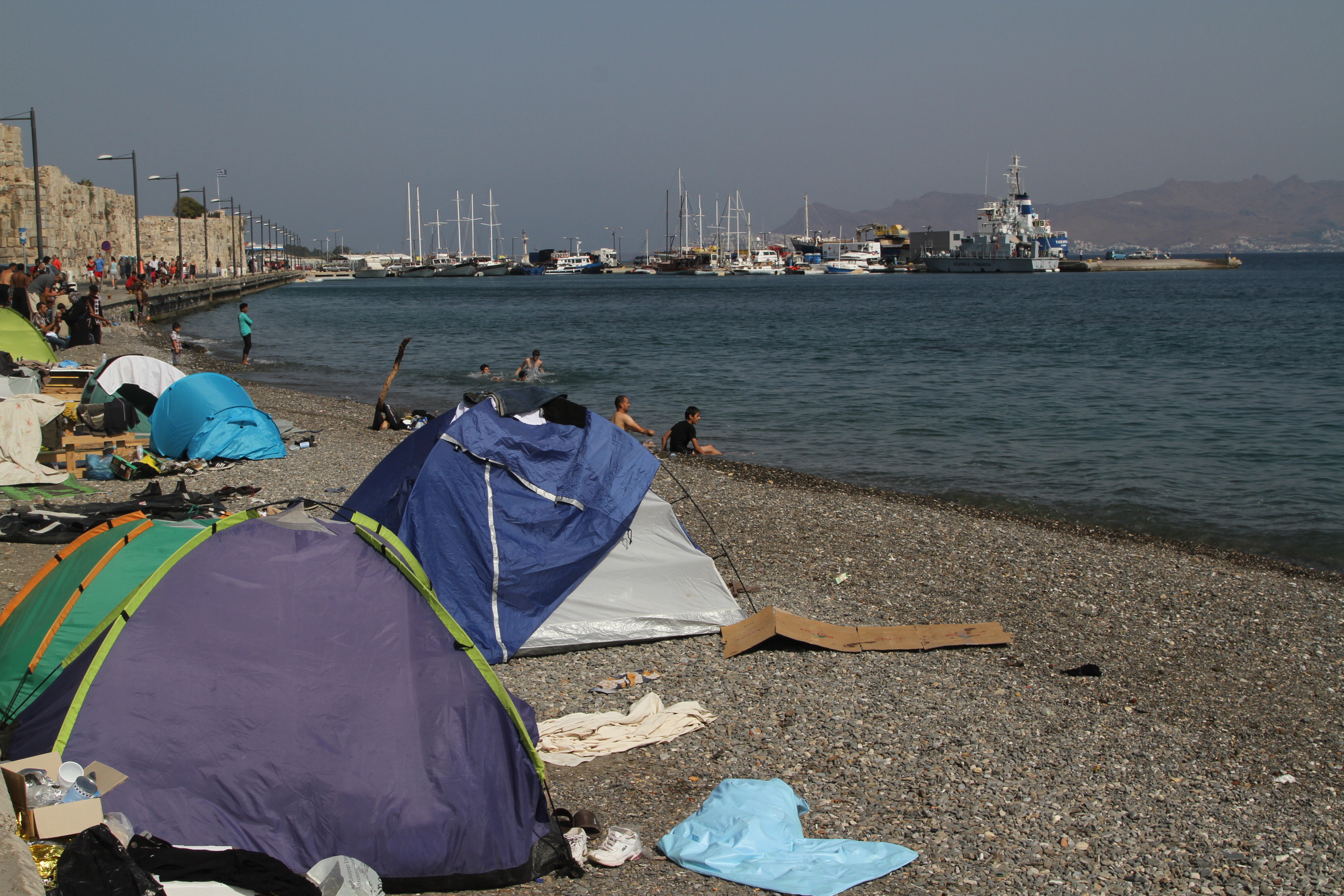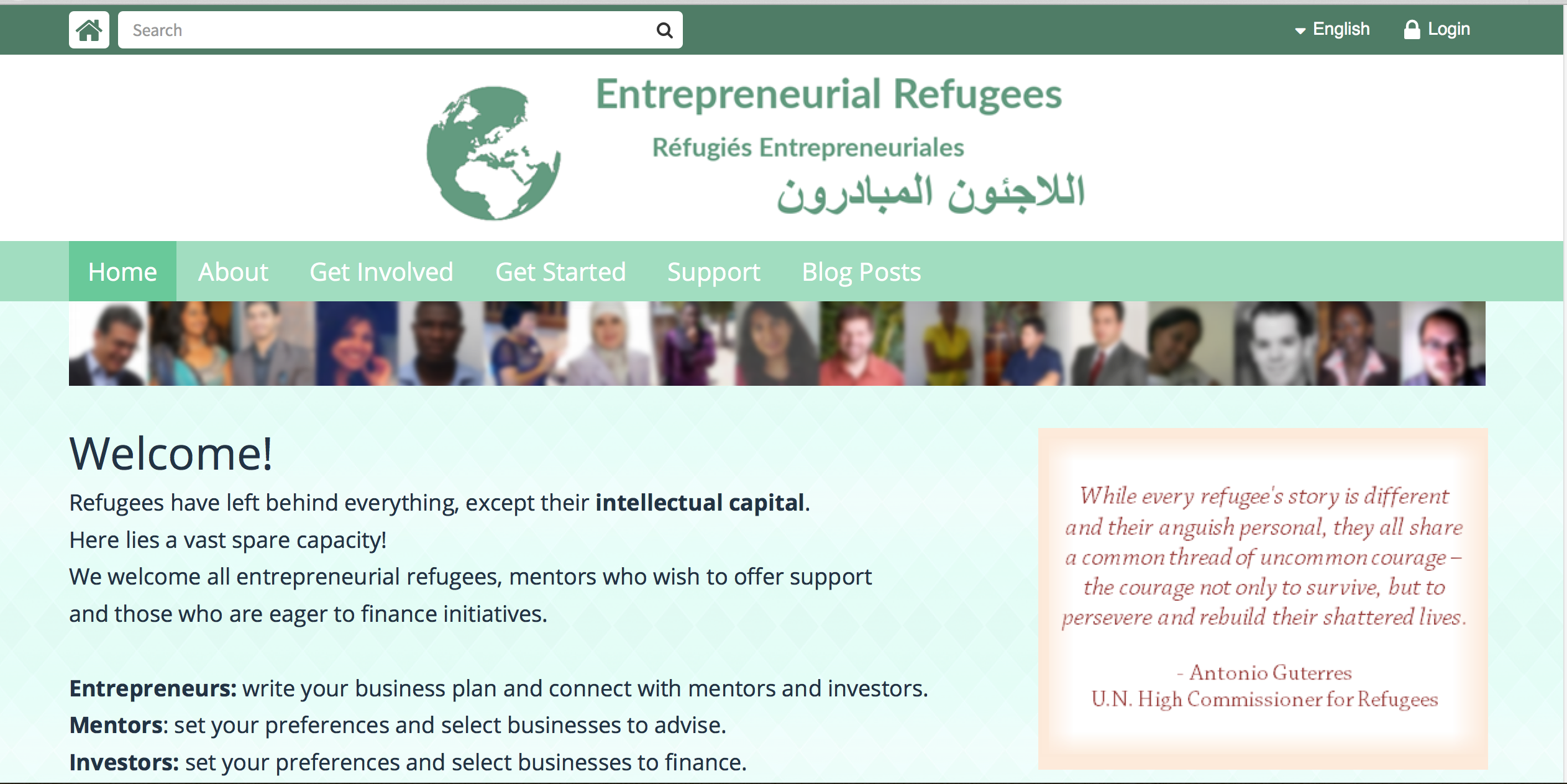
Kos, Greece: More refugees arrive every day to the Greek island of Kos where they await to the access to Europe. Photograph by Jose_Hinojosa. Copyright: Demotix
More than one million refugees and migrants have crossed the sea to Europe last year escaping wars and unrest in their countries, seeking better lives for themselves and families.
The International Organisation for Migration (IOM) put the number [1] at 1,034,745 by 29 December. The vast majority of refugees arrived by sea to Greece (839,561) and Italy (152,864) and the top five nationalities come from Syria, Afghanistan, Iraq, Pakistan, and Iran.
One organisation, based in Amsterdam, Netherlands, has turned its attention to entrepreneurial refugees among the influx, in a bid to help them put their business acumen into good use in order to build new lives for themselves in their new homes. Speaking on behalf of the team behind Entrepreneurial Refugees [2], Tarek Amr told us more about the project and what they aim to achieve from it. Amr [3] is also a Global Voices contributor.
GV: What is this project about and why was it created?
bidx: Like most people, we – at bidx [4] – have been following the news about the refugees in the past few months, or what some media outlets like to call “refugees crisis”. Our initial thought was: how can we help? Our next thought was: how can we challenge the ongoing misapprehension that refugees are a burden on their new home’s economy, when in fact they can contribute to its growth.
We decided to build an online platform for refugees who are willing to start their own business, to connect them with mentors and investors who can support them. Entrepreneurial refugees upload their business ideas. Volunteers from their new homes join the portal as mentors, to offer advice and help them start their business. We also hope promising ideas will find their way to investors on our platform who are willing to fund them.
GV: Who is behind this platform and what do you hope to achieve?
bidx: Bidx main product is called a bidx Portal, which is an online platform for matching entrepreneurs to mentors and investors, as well as providing automated ways for evaluating business plans and collaboration among members of the platform. This product is mainly sold to incubators, banks and business school in order to manage their startup communities. We usually tailor each portal to the wants and needs of our clients. This time we created a portal hoping that we can provide some help to entrepreneurial refugees.
GV: How will the site work?
bidx: The website offers members the ability to present a business plan, search for business plans, give feedback, connect and communicate. The website provides some basic measures for evaluating businesses, like how complete a business plan is. Mentors and investors can rate businesses so that good plans can easily be found. We rely heavily on volunteers, especially those who advise entrepreneurs in the form of mentorship.
Our team will start off by moderating the website ourselves. Our goal is to find sponsors in a later stage, when the number of entrepreneurial refugees is substantial.
GV: How do you intend to create awareness about this project?
bidx: Our plan is to raise awareness among two groups of people; the refugees and the volunteers. As for the refugees, once we are done with translating the website into Arabic, we will start contacting refugees centers and try to distribute flyers explaining our concept. As for the volunteers, we will use social media, and our friends in mainstream media to spread the word among those who are willing to volunteer by joining as mentors or possible investors.
This page describes how to help: https://
entrepreneurialrefugees.bidx. net/get-involved/ [5]
GV: Is this platform available for other countries to start similar projects or is it restricted to the Netherlands?
bidx: It is available for all entrepreneurial refugees all over Europe. The size of our team has made us focus on the Netherlands more in this stage, as it is easier for us raise awareness locally. However, we want to offer as much support as possible to all refugees in Europe.
GV: Is having a platform online a viable option for refugees?
bidx: We have asked ourselves the same question. We know many refugees own smartphones and use them to communicate with each other about where to go. We also hope refugees reception centers and the volunteers there can help by giving the refugees access to computers. Additionally, we are actively looking for sponsors who can help us provide refugees with access to computers and internet connections.
In the end, we hope our portal will be useful to entrepreneurial refugees, to set up their business and improve their welfare.
GV: Do asylum laws in Europe allow refugees to start their own businesses and work?
bidx: That’s a very valid question, and we have done our research in this area. Let me first emphasise that we would like to our portal to be inclusive to all refugees regardless of their asylum status. In the Netherlands, refugees are not permitted to work during the first six months of the asylum procedure. Later on, things change 180 degrees, once they are naturalised as citizens.
As for the latter case, there are already thousands in the Netherlands, and we hope our portal will help them right away. While for the former case, one possibility we are thinking of, is the Dutch startup visa scheme [6]. As explained by the Dutch Immigration and Naturalisation Service, the startup visa “makes it possible for ambitious entrepreneurs to apply for a temporary residence permit for in the Netherlands. The residence permit for ‘startup’ entrepreneurs allows ambitious entrepreneurs to start an innovative business for a year”. It is worth mentioning that the start-up must be guided by an experienced facilitator in the Netherlands.
As for other European countries, it is clear that different states have different regulations. That’s why we hope the local mentors in our portals will work with refugees and guide them through ways they can legally start their business.
Using the portal's services, for both the refugees and volunteers mentoring them, is free of charge.
